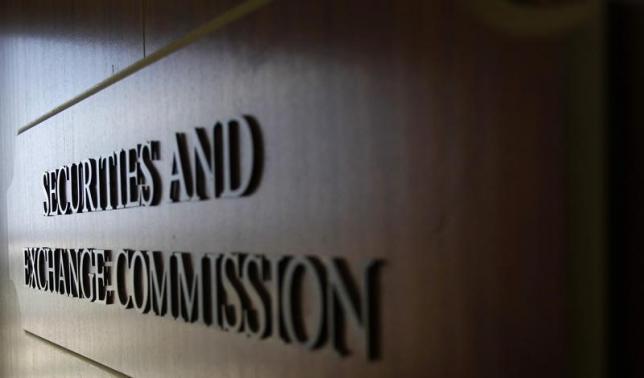US SEC launches civil probe into FIFA bribery case - source
WASHINGTON: US securities regulators are examining the behavior of several companies with links to FIFA or other soccer bodies caught up in a major corruption scandal to see if there were possible violations of US federal bribery laws, a person with knowledge of the matter said.
The civil probe, which is in its early stages and may not lead to any findings of wrongdoing or enforcement action, is being conducted by the US Securities and Exchange Commission.
It opens a new front in a wide-ranging investigation by the US and Swiss authorities into bribery involving soccer officials, marketing executives and various companies. In late May, the US indicted nine soccer officials - most of whom held positions at FIFA - and five executives for a range of offences related to more than $150 million of alleged bribes and kickbacks.
The SEC probe centers on publicly-traded companies who have been involved in soccer contracts, such as athletic shoes and sportswear company Nike Inc, said the source, who asked not to be named because of the non-public nature of the investigation.
The exact scope of the probe and the names of other companies being scrutinized could not be learned.
An SEC spokeswoman declined to comment.
Although Nike has not been specifically named or charged with any wrongdoing, the company was swept into the scandal when US prosecutors in the indictment described bribes and kickbacks in connection with a landmark 1996 Nike deal in Brazil.
The description of the $160 million, 10-year deal signed by "Sportswear Company A" matched exactly the details of Nike's agreement to become the footwear and apparel supplier and sponsor of the Brazilian national team, which at that time was the most successful in the world.
In a statement on Friday, a Nike spokesman said that the company "is committed to cooperating with any government investigation into the FIFA matter.”
In late May, Nike said that the government had not alleged that it violated the law or knowingly took part in a kickback scheme.
DISGORGEMENT
Securities experts say the SEC could potentially have a hook in the case through the Foreign Corrupt Practices Act (FCPA), an anti-bribery law.
The SEC and the US Department of Justice both have power to bring FCPA cases, with the SEC's jurisdiction centering on violations by public companies.
The law's core anti-bribery provisions only apply to payments to governments or government officials. The Brazilian Football Confederation (CBF), which signed the 1996 deal with Nike, is a private organization.
But the law contains a corporate books and record-keeping requirement that applies to other kinds of illicit payments - such as commercial bribery - that may not be related to government corruption.
A provision of the FCPA prohibits companies from falsely recording bribe payments as legitimate business expenses.
For example, if companies misrepresented bribes paid to soccer officials as marketing or other kinds of expenses in their books, it could be considered a violation of the law, lawyers said.
Violations of this so-called books and records provision can lead to fines and disgorgement of ill-gotten gains.
For SEC cases, it is not enough of a defense for a company to say it did know that any of its overseas units were involved in paying bribes.
"Nobody at the parent has to know that the transaction was a bribe and was misreported, only someone at the subsidiary has to know," said one attorney specializing in the FCPA. The attorney is not directly involved in the case but asked to remain anonymous to protect client relationships.
"With a bribe, you have to prove that the parent knew. With books and records, you just have to have a bad entry for the parent to be responsible."
Nike is the only US public company to be referenced in the US indictment of the officials and executives.
Major publicly traded companies in the US who are FIFA sponsors include McDonald's Corp, Visa Inc and Coca-Cola Co.
On Friday, Coca-Cola and McDonald's both added pressure on FIFA for reforms only days before its executive committee meets on Monday.
The SEC has invoked the FCPA's books and records provision before to charge public companies for violations in connection with commercial bribery.
Earlier this year, the agency brought civil FCPA charges against Goodyear Tire & Rubber Co, whose Kenya subsidiaries were accused of paying bribes to employees of government-owned entities, as well as private companies.
Goodyear agreed to pay more than $16 million to settle the charges without admitting or denying wrongdoing.
In another case in 2013, the SEC and the Justice Department both filed parallel civil and criminal FCPA cases against ATM-maker Diebold, a publicly traded company accused of bribing government officials in China and Indonesia.
The U.S. government not only cited official bribes; it also accused the company of books and records violations in connection with payments to private Russian bank employees.
The company entered into a deferred prosecution agreement with the Justice Department, and paid penalties and disgorgement to settle the matter.
"Even if bribes are made only on a commercial basis, if they are misreported as promotional or other expenses, they can be the basis for FCPA liability,” Sidley Austin attorneys wrote in a client memo earlier this year.






